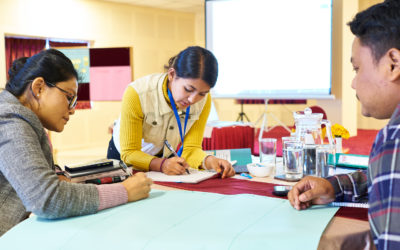Reports came out over the weekend from the United Nations and local media in Nepal, showing that many women are enslaved multiple times. Free the Slaves works with several anti-slavery organizations in Nepal, where poverty forces many to seek employment away from home, making them vulnerable to human traffickers.
The UN’s Mediaglobal.org reported that an estimated 10,000 Nepali girls a year are enslaved in India’s brothels. They sometimes go willingly, thinking they will work in factories or restaurants. Instead, they are entrapped into the sex trade.
Even when girls are rescued from their slave masters, the road to recovery is a long one. They remain vulnerable to being re-trafficked, if the underlying economic conditions that drove them to slavery in the first place are not rectified. Social pressures also weigh on the survivors. Free the Slaves’ board member emeritus Siddharth Kara spoke to Mediaglobal.org: “Shame and stigma back home consign [trafficking victims] to a life of limited options.”
Without sufficient economic and community-based support, people are vulnerable to being re-enslaved. Our partners in Nepal are hearing more and more about people being trafficked multiple times—first, within Nepal and India, then, to countries in the Persian Gulf, like Saudi Arabia, Kuwait, Oman.
The English-language, Nepalese newspaper The Himalayan ran an article on this very phenomena, saying “Gulf countries are fast turning into destinations for… trafficking even though government policy does ‘not encourage’ women to seek jobs there.” The report goes on, “approximately three million Nepalis have migrated to countries other than India for work.” India remains the most popular destination for Nepali migrant workers.

